- connecting our global network
31 May 2021
UniSA Researcher Promoting Sleep Health with NASA
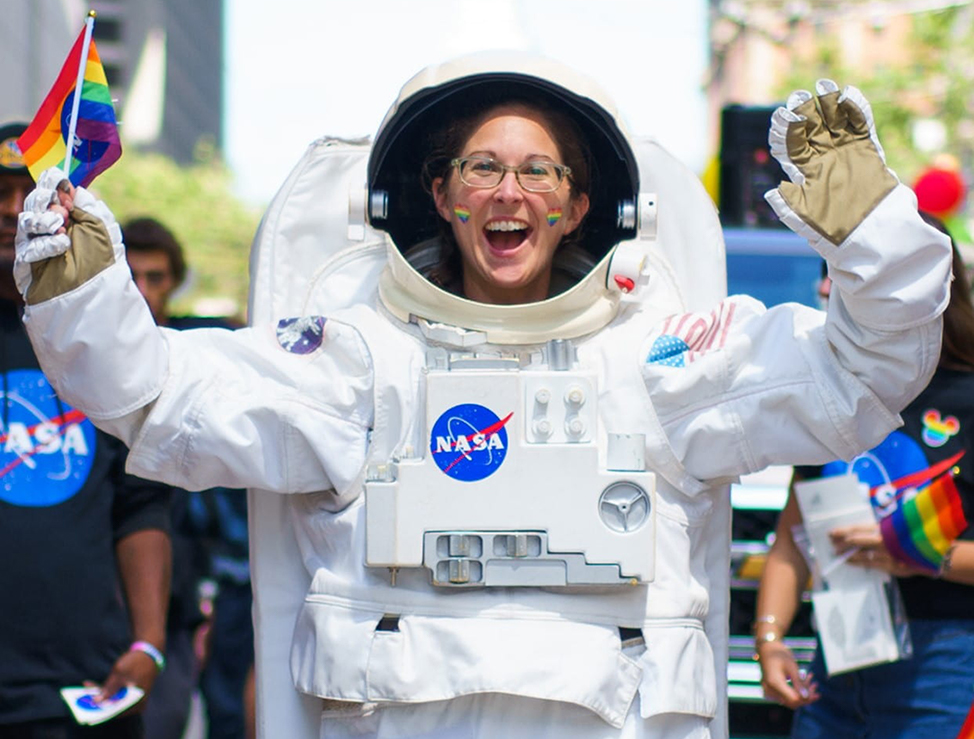
Dr Cassie Hilditch
Doctorate by Research, Psychology
Senior Research Associate, Department of Psychology, San José State University
Fatigue Countermeasures Laboratory, NASA Ames Research Center
After being randomly allocated to a sleep lab at the Repatriation General Hospital with the Adelaide Institute for Sleep Health, Dr Cassie Hilditch was lucky enough to unearth a deep love of sleep research, and so began her successful trajectory in psychology.
Finding her stride in this niche field of sleep, she earned a PhD in Psychology at UniSA with the Centre for Sleep Research and has now found herself in California supporting NASA projects as a vital part of the movement to promote sleep health in the general public.
After university, Cassie moved to London for five years and worked as a fatigue risk management researcher and consultant for a small company. As a consultant she worked with different operators all over the world, from oil exploration in Libya and Angola, to rescue helicopter operations in the Swiss Alps.
This time as a research consultant shaped her research goals in investigating real world questions and translating results to occupational settings – and most importantly – the ways in which sleep is important for personal health, not just safety in the workplace.
Now, as a Senior Research Associate in the Fatigue Countermeasures Laboratory based at NASA Ames Research Center in Silicon Valley in California, Cassie is meaningfully contributing to the research missions of her lab and learning as much as possible from the amazing and diverse scientists at NASA.
Here we asked her a couple of questions about her career path so far and the fascinating space of sleep research, working with NASA, and her plans to go to the moon…
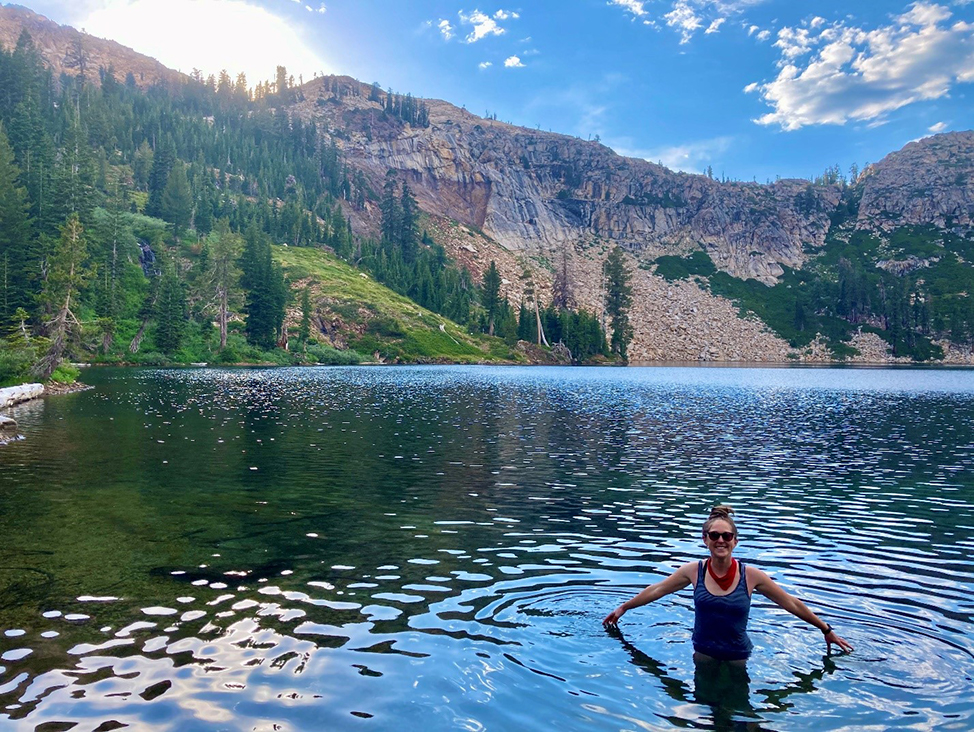
NASA is such an iconic and impressive organisation to work with – their work being known throughout the world. What has it been like working at a place with such facilities and reputation?
Working as a contractor in the Fatigue Countermeasures Lab based at NASA Ames is my dream job. Although my daily activities are pretty similar to most other jobs I’ve had, I still get a kick out of seeing the iconic NASA meatball logo every time I go to work (although I’ve been working from home for over a year!).
I also have the opportunity to meet amazing people, go on tours of world-class facilities, and hear speakers such as Dr Katie Bouman who produced the first ever image of a black hole. I often look at the moon when it’s up during the day at work and get overwhelmed with the thought that Neil Armstrong, who walked on the moon, also walked around the Ames campus as he trained in the lunar lander simulator. So, I can at least walk in some of his footsteps!
Could you tell us a little about your role as a Senior Research Associate with San José State University at the Fatigue Countermeasures Laboratory within the NASA Ames Research Center?
In my role as Senior Research Associate at the Fatigue Countermeasures Laboratory, my daily activities reflect a pretty standard academic research role: designing and conducting studies, analysing data, and writing manuscripts. I’m also often preparing for conferences, presentations, and meetings – both academic and industry-based.
The main theme of our lab is to investigate ways to improve sleep, alertness, and performance in aviation and space flight. For me specifically, I am currently expanding on my doctoral work by investigating countermeasures to sleep inertia – the grogginess you feel when you first wake up.
It’s important that those who work on-call or nap on shift in operational settings are able to return to full alertness as soon as possible to minimise the risk of a safety-critical error. We are trialling different ways to reduce the impact of sleep inertia on alertness and cognitive performance immediately after waking.
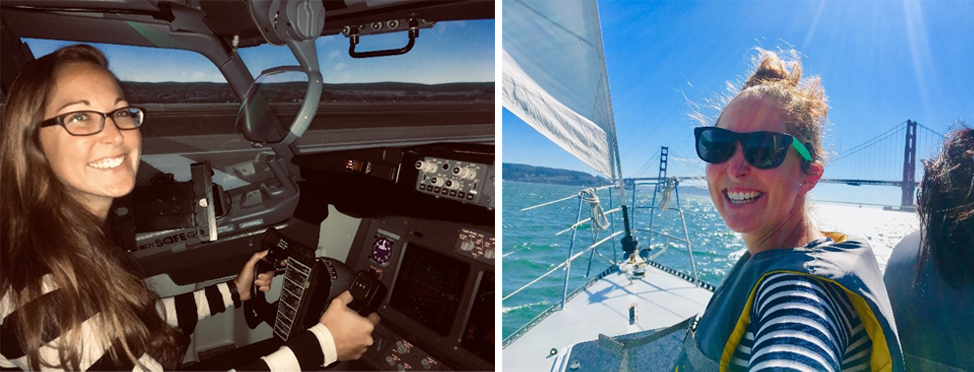
Why is sleep research so important and meaningful to you?
Sleep (should!) take up one-third of our whole lives. What other single activity is that important and that universal? If you tell someone you meet at the pub that you do sleep research, you’re walking into a minimum one-hour conversation on their experiences of it. And yet, very few people actually know much about sleep.
It’s the third pillar of health alongside diet and exercise, yet it still lags behind in public awareness and education. We’re starting to learn so much about how important sleep is for short and long-term health as well as mood, academic performance, safety in the workplace, etc.
Sleep is so fundamental to everything we do, yet we still think of it as a tradeable commodity – we get up early to go to the gym, we stay up late to party, we pull all-nighters to submit an assignment – but in each of these cases, we are potentially undoing any benefit from the exercise, socialisation, or study by losing sleep in order to do it!
There’s obviously some balance and nuance to this statement, but the gist is that we often don’t protect sleep as much as we should. So that’s why I’m so passionate about sleep research – we still have so much to learn, but we also have so much to tell the general public that we already know!
Have you come across any challenges or adversity throughout your career – has this made you stronger or better researcher because of it?
Starting my PhD at UniSA was a challenge in that we were without leadership for a long time in the Centre for Sleep Research. I think it presented us with a real opportunity for growth and independence as we were able to build a lab how we wanted it.
Everyone has faced some degree of adversity over the past year with COVID-19. I was lucky enough to keep my job, but I have felt very isolated from friends and family back home. I’d also like to acknowledge the privileges that have allowed me to pursue my academic and career goals. I have undoubtedly faced far fewer hurdles than most.
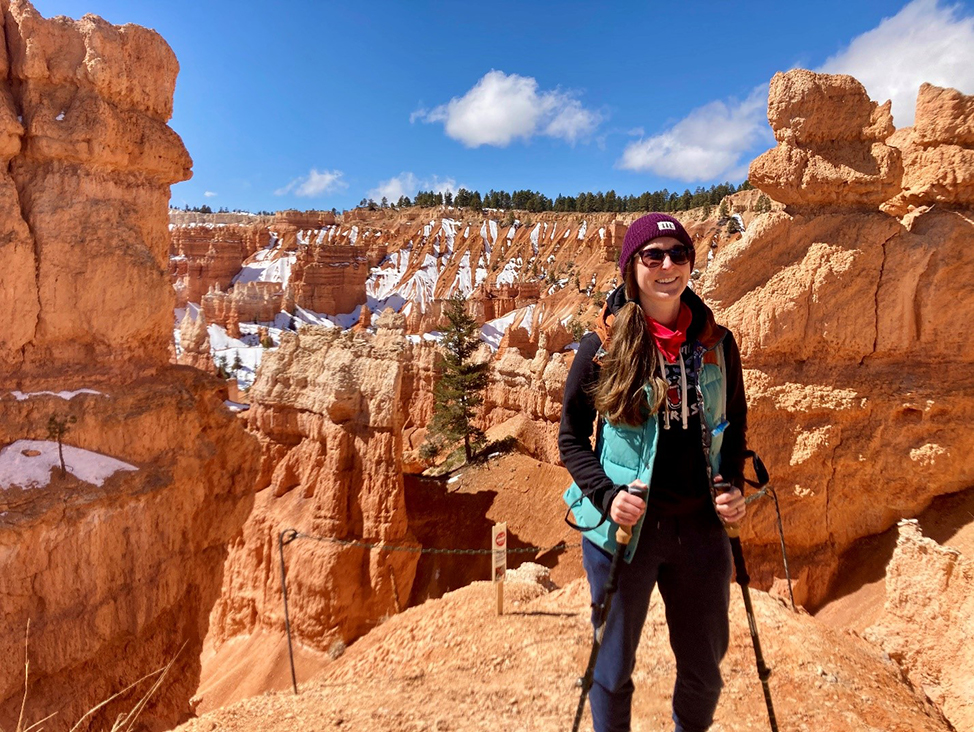
How did you make your way to California – what made you make the move?
I’ve moved to new cities and countries a few times in my life, so making the trip from coast-to-coast for my dream job seemed like a no brainer. Prior to California I was living in Boston, Massachusetts doing a post-doc at Harvard Medical School and Brigham and Women’s Hospital. In that post-doc I was solely running lab-based studies, so I was craving field studies with 'real' participants.
I’ve also always wanted to live in California – it is the most 'Australian' part of America in terms of weather, flora (gum trees everywhere!), and politics. My now husband and I actually took a train when moving across country. The California Zephyr runs from Chicago, Illinois to San Francisco, California over three days. It travels across prairies and plains, winds along rivers between mountains, and offers one of the most scenic train journeys in North America. I highly recommend it!
What’s it like living and working in a place like the Bay Area? How do you spend your time when you’re not working?
There are certainly challenges to living in the Bay Area, rent prices being one of them, but it’s located in one of the most beautiful parts of America. You have the Pacific Ocean at your doorstep and redwood forests in all other directions. There are more trails than you could hike in a lifetime and a climate that is relatively stable year-round (although it’s ALWAYS cold in San Francisco!). Before the pandemic I also took advantage of the number of bands that toured through the Bay Area (but would rarely play in Adelaide!).
At the moment all my spare time goes to volunteering at an urban wildlife rescue centre in my neighbourhood. What started as a two-hour shift once a week cleaning and feeding opossums, skunks, and squirrels has bloomed into fostering orphaned squirrels until they are ready to be released, and becoming the coordinator for a team of volunteers. It’s a very rewarding investment of my time!
When I don’t have hungry mouths to feed every four hours, my husband and I escape for camping and hiking trips to make the most of the natural beauty in California and across America.
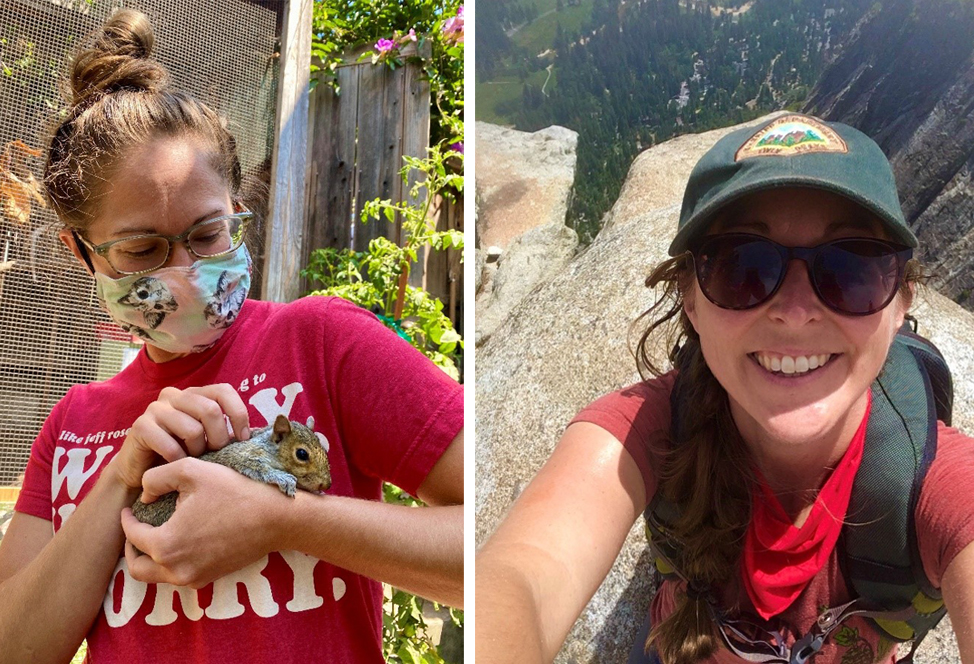
Do you have any future goals or things you would like to achieve in the future?
Go to the moon! Maybe one day I’ll start a sleep lab at the Australian Space Agency so that I can come home as well! Generally speaking, I’d really like to be part of the movement to promote sleep health in the general public, not just in occupational settings. Sleep is important for personal health, not just safety in the workplace.




